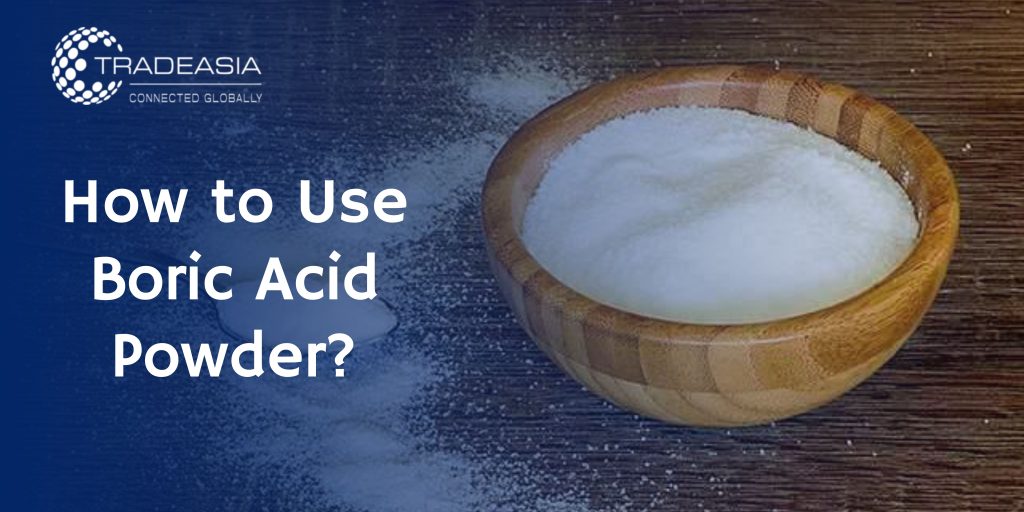Boron
How to Use Boric Acid Powder to Treat Yeast Infections
26 March 2024
Table of Content
- Understanding Boric Acid powder
- What Does The Research Indicate?
- How to Use Boric Acid Powder
- Always Follow the Directions
- Conclusion
Boron
26 March 2024
When other antifungal drugs fail to treat a yeast infection, doctors may offer boric acid powder as a second-line treatment. Boric Acid prevents Candida fungus from growing. This fungus promotes the development of yeast infections. Boric Acid powder is accessible as vaginal suppositories. In this post, we will look at the study on boric acid as a treatment for yeast infections, as well as its effectiveness and potential hazards.
It is normal to have little levels of yeast on the skin and in the mouth, throat, and vagina. Under certain conditions, such as a weakened immune system or hormonal changes during pregnancy, yeast can grow and cause illness. Candidiasis is the medical term used to describe a yeast infection. Yeast infections are prevalent and usually arise in the vagina. They are usually caused by the fungus Candida albicans (C. albicans) and Candida glabrata (C. glabrata).
Boric acid is a white powder or crystalline solid that has high antiviral and antifungal properties in the body. According to research, both C. albicans and C. glabrata grow more slowly when exposed to boric acid. It disrupts the yeast’s normal life cycle, preventing it from developing and becoming infectious. According to the Centers for Disease Control and Prevention (CDC)Trusted Source, patients should use boric acid as a last resort, that is, if other antifungal medications or ointments fail to treat the yeast infection or it reoccurs.
Boric acid may be effective in treating infections that are resistant to first-line treatment. This is commonly an antifungal medicine, such as fluconazole, which can be taken orally or used topically. If these do not work, a doctor may prescribe boric acid or another medication, such as nystatin or flucytosine. Gelatin capsules can be used as vaginal suppositories. The CDC recommends taking capsules containing 600 mg of boric acid once a day for two weeks.
Boric acid drugs are typically inexpensive. They can be purchased over the counter at pharmacies or online. If symptoms persist after using boric acid, consult a health practitioner or gynecologist.
According to ResearchTrusted Source, boric acid is beneficial in treating Candida infections, even those that do not respond to standard antifungal drugs. People who have recurring yeast infections may benefit the most from boric acid therapy.
Authors of a 2011 Medical ReviewAccording to Trusted Source, boric acid is a safe and cost-effective therapy choice for patients suffering from recurring or chronic vaginal infections, particularly when conventional treatment fails. Risks and Side Effects: A growing amount of research indicates that, when used at the recommended dose, boric acid has fewer negative effects than traditional ointments.
Some typical side effects of boric acid consumption are:
A person with any of the following should not use boric acid capsules:
It’s vital to note that boric acid is poisonous. If used inappropriately, it can result in a deadly overdose, but this is uncommon. Boric acid powder should not be used orally or applied directly to open wounds. Consult your doctor before using this medicine while pregnant.

Boric acid vaginal suppositories are accessible to purchase. They are solid, oval-shaped capsules that a person inserts into their vagina. They turn liquid as they warm up to the body temperature.
To treat a Candida infection, the CDC Trusted Source recommends vaginal suppositories containing 600 mg of boric acid powder each. A person should utilize them once a day for two weeks.
Before using a vaginal suppository, make sure your hands and vaginal area are clean and dry to prevent bacteria from entering the body.
To use a suppository, you should:
Suppositories are safe to use during menstruation. Use menstruation pads instead of tampons because tampons may absorb part of the medication.
Yeast infections are frequent among healthy persons. Researchers are still looking for medicines that have fewer side effects, are more tolerable, and less expensive while remaining highly effective. Vaginal yeast infections can be treated with oral medications, typically antifungals. These require a prescription. Other drugs are available over-the-counter.
Boric acid Powder is a typical alternate medication recommended by doctors when first-line treatment fails or the infection recurs. People who have recurring vaginal yeast infections may benefit from taking boric acid capsules. A doctor can advise on the appropriate dosage and how long to take the drug. If you are interested in our products for your specific business needs, please do not hesitate to contact us.
We're committed to your privacy. Tradeasia uses the information you provide to us to contact you about our relevant content, products, and services. For more information, check out our privacy policy.
Leave a Comment